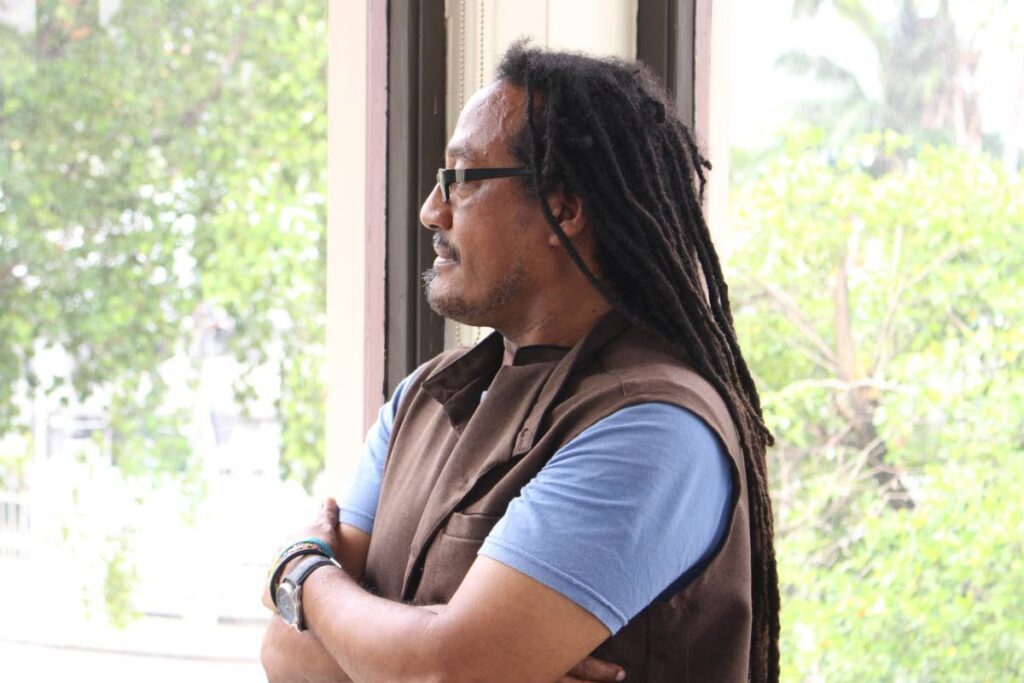Fighting crime with art and design

In just a few days, Trinidad and Tobago's underused, neglected, and derelict community public spaces will undergo intense scrutiny at a national symposium entitled Social Art & Design: Public Space & Community Transformation.
This three-day event, hosted by the non-governmental organisation Developing Art and Design Awareness & Projects (DADA) and the Central Bank, aims to propose art and design solutions to address the prevalent issue of crime and visually and physically uninspiring spaces in cities, towns, and villages.
DADA's representative Dean Arlen emphasises that the significance goes beyond mere surface aesthetics.
"It's not solely about enhancing the visual appeal of public spaces. Collaborative social art and design are about fostering a more robust, secure, and culturally vibrant nation through the joint effort to create and install art for community transformation."
Arlen raises concerns about the present lack of care for public spaces, saying, "It is imperative to acknowledge that public spaces are not merely physical locations; they are the lifeblood of our communities. In TT, we have a good history of not vandalising what little public-space art we have.
"We also have a very low rate of art installations in public spaces. And we have a solid reputation of neglect and poor maintenance of public spaces."
Psychologist Katija Khan, a lecturer in psychology at UWI's Faculty of Social Sciences, draws a parallel between crime and neglected public spaces and recognises the potential of well-designed public spaces as effective crime deterrents.
Khan, president of the Caribbean Alliance of National Psychological Associations, notes, "The design of physical spaces, urban planning, and architecture can influence criminal opportunities and create a backdrop for criminal activities. The field of environmental criminology has emerged to investigate precisely this.
"For instance, concepts like CPTED (Crime Prevention Through Environmental Design) and OTREP (Opportunity, Target, Risk, Effort, and Payoff) incorporate elements of psychological behavioural learning theory and suggest that, theoretically, increasing the risk and effort involved in planning and committing a crime may decrease the likelihood of criminal acts. Well-designed public spaces with proper maintenance, adequate lighting, high foot traffic and monitoring can potentially deter crime, instil a sense of safety and security among community members, and reduce levels of fear and anxiety."

DADA has already seen success with ongoing projects in the Heights of Aripo and Mt D’Or, among others.
The symposium's opening ceremony on November 16 will feature Dr Bonaventure Soh Bejeng Ndikung, a world-renowned curator, author, and biotechnologist.
Ndikung, the director and curator at Berlin's prestigious Haus der Kulturen der Welt, the founder of SAVVY Contemporary in Berlin, and the artistic director of the Sonsbeek 20–24 art exhibition in the Netherlands, has directed and curated major international art events in Mali, the Netherlands, Senegal, and Finland. His contributions have earned him international acclaim, and he is a professor in the spatial strategies MA programme at the Weissensee Academy of Art in Berlin.
Ndikung is also a recipient of the first OCAD University International Curators Residency fellowship in Toronto. His published works include The Delusions of Care (2021), An Ongoing-Offcoming Tale: Ruminations on Art, Culture, Politics and Us/Others (2022), and Pidginization as Curatorial Method (2023).
The symposium will run from November 16-18, and the accompanying exhibition will continue until November 30.
These events are open to the public and are expected to draw the attention of city planners, members of the construction industry, developers, engineers, psychologists, art therapists, and artists from both the public and private sectors.
The working sessions will delve into various topics, including public space democratisation and enhancement; planning, art, and design, and quality; play and community building; collaborative design in rural and urban communities; art, craft, and design as therapy; and carnival/festivals as art in public spaces.
This event is supported by the German Embassy and the Sport and Culture Fund.
Members of the public interested in attending the conference can register via social media using the handle dada&projects or by e-mailing dadaprojectadm@gmail.com or calling 475 5257.


Comments
"Fighting crime with art and design"